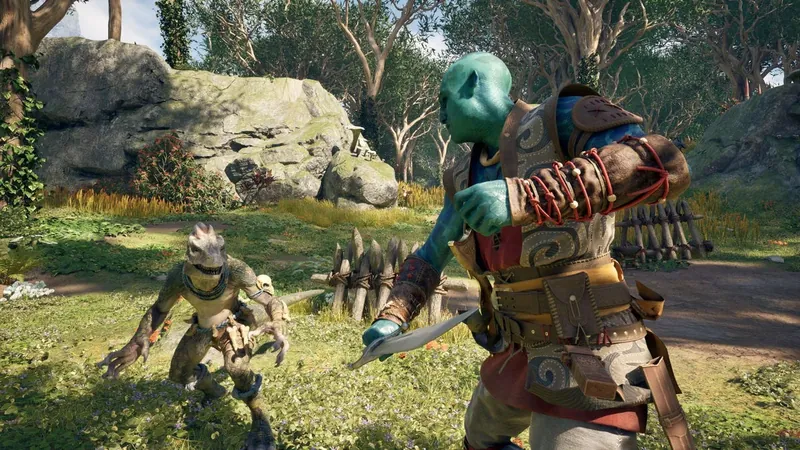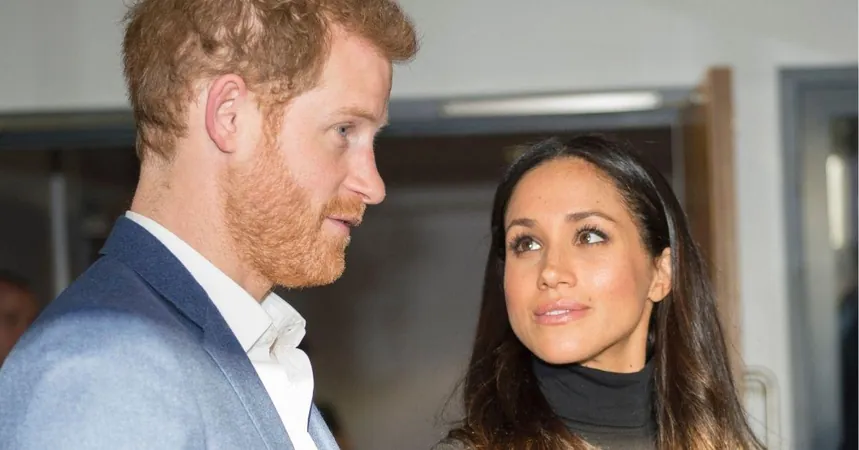
The Controversy Surrounding Avowed: A Closer Look at the Anti-Woke Backlash and Its Underpinnings
2024-12-06
Author: Liam
As we approach 2024, the gaming landscape has been increasingly marred by a disconcerting trend: a small but vocal group of so-called “grifters” who seek to create controversy over virtually every game announcement.
Regardless of the game or its developer, these individuals diligently scour previews for anything they can label as evidence of so-called “wokeness.” The latest target of this manufactured outrage is the upcoming fantasy role-playing game, *Avowed*, developed by Obsidian Entertainment.
This ongoing social media drama functions like a well-oiled machine. The pattern is predictable: when a game is announced, grifters quickly pounce on features that could be seen as diverse or inclusive, then spin narratives claiming that the game is the result of a “woke agenda” threatening to strip away traditional gaming culture.
Their goal? To convince disillusioned young men that entertainment spaces are being infiltrated by agendas aimed at robbing them of representation in games.
In the case of *Avowed*, however, these claims have unravelled quickly. Unlike previous controversies, the critics couldn’t identify any specific elements within the game that would warrant their accusations of being overtly politicized or “woke.” Their failure to establish a coherent argument sheds light on a deeper truth: that their grievances may stem more from prejudice than from legitimate concerns about gaming culture.
The backlash began around Gamescom, with critics expressing outrage over a promotional image that featured a diverse set of characters, including a Black woman and a blue-skinned man.
The absence of a traditional white male character in the marketing was enough to ignite a firestorm of outrage among those branding the game as a product of a leftist agenda.
Such reactions reveal a troubling undercurrent of bigotry, where the very inclusion of diverse characters becomes a point of contention.
Concerningly, the complaints not only highlight racial biases but also expose broader issues within the gaming community.
This mindset portrays diversity as an attack on traditional representation, creating a narrative that suggests there’s only room for one type of hero—usually a white male.
In an era where many games celebrate a variety of heroes from different backgrounds, this backlash represents a regressive viewpoint that refuses to acknowledge the ever-evolving nature of gaming narratives.
As previews for *Avowed* began surfacing, the situation worsened.
Journalists reported that the game would feature options for “they/them” pronouns in its character creator, igniting even more alarm among detractors who interpreted this as a symbol of the game’s supposed “woke agenda.”
Yet, the gameplay, centered around epic battles against monstrous creatures in a richly crafted fantasy world, remained unaffected by such considerations.
The gameplay focuses on fighting, exploration, and the implications of power, with themes surrounding the misuse of magic and colonialism—far from being a political statement.
Amidst the uproar, critics of *Avowed* have grabbed hold of minor statements made by members of the development team, twisting them into irresponsible narratives about the game’s potential failure.
The involvement of high-profile figures like Elon Musk in criticizing the inclusion of pronoun options only serves as further evidence of how this discourse can escalate.
Musk’s misinterpretation of comments made by the game’s art director only adds fuel to the fire, framing diversity as an attack on so-called “white culture.”
In the grand scheme, this illustrates a problematic cycle where racism, sexism, and homophobia are mobilized for profit, using cultural panic to attract followers and generate revenue through fear-mongering.
The ongoing outrage surrounding *Avowed* ultimately boils down to a reluctance to adapt to a more diverse and inclusive gaming landscape.
What’s crucial to remember is that *Avowed* is not about diminishing the role of white, male characters; rather, it represents an expansion of narratives that include a wider range of experiences.
This controversy reflects a larger cultural moment in which the gaming community must confront its biases, ensuring that all players—regardless of their background—can see themselves reflected in the games they play.
As we progress deeper into the age of video games, it is imperative to recognize that the rise of inclusivity is not a threat but an opportunity to explore richer stories and diverse perspectives.
The gaming industry is on the cusp of a new era where all players have the chance to find representation.
In this battle against a few scattered grifters wielding the banner of bigotry, the voices of the many must always rise louder, heralding a future where every gamer can feel at home.









 Brasil (PT)
Brasil (PT)
 Canada (EN)
Canada (EN)
 Chile (ES)
Chile (ES)
 España (ES)
España (ES)
 France (FR)
France (FR)
 Hong Kong (EN)
Hong Kong (EN)
 Italia (IT)
Italia (IT)
 日本 (JA)
日本 (JA)
 Magyarország (HU)
Magyarország (HU)
 Norge (NO)
Norge (NO)
 Polska (PL)
Polska (PL)
 Schweiz (DE)
Schweiz (DE)
 Singapore (EN)
Singapore (EN)
 Sverige (SV)
Sverige (SV)
 Suomi (FI)
Suomi (FI)
 Türkiye (TR)
Türkiye (TR)